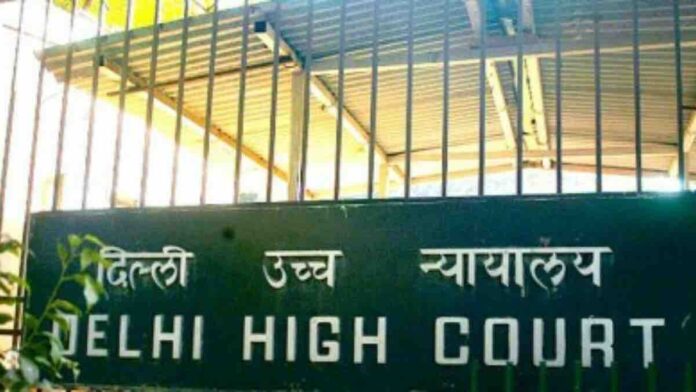A marriage cannot be “avoided” by claiming one spouse induced the other into wedlock with fraudulent statements about family or fortune, the Delhi High Court has said while refusing to annul a love marriage.
Accusing his wife of having misled him about her being in beauty industry and falsely promising they will set up a business together on her property, the husband had approached the court for a decree of nullity.
While a divorce dissolves a marriage that has existed, a marriage that is annulled never legally existed at all.
The husband sought annulment of their marriage under the Hindu Marriage Act (HMA) on grounds of fraud and claimed she subsequently “absconded”. He said he got influenced by the wrong information his wife gave him before their wedding.
A bench headed by Justice Suresh Kumar Kait rejected the husband’s assertions and noted there has to be deliberate concealment of “material facts”, which are the fundamental basis of a marriage, to constitute a “fraud” warranting annulment of the union.
In the present case, the alleged representations are neither related to the nature of the marriage ceremony nor could have interfered with the marital life of the parties, the court said.
“It is significant to observe that as per the appellant (husband) himself, they were known to each other and had a love marriage, any representation by the respondent about her having sufficient means for setting up of a business, cannot be said to be of the nature as would amount to fraud or concealment of material fact entitling the appellant to a decree of nullity,” the bench, also comprising Justice Neena Bansal Krishna, said in an order passed last week.
“The marriage cannot be avoided by showing that the petitioner was induced to marriage by fraudulent statements relating to family or fortune, caste or religion or age or character of the respondent,” the court said.
The court noted as long as a person freely consents to the solemnisation of marriage in accordance with customary ceremonies, while understanding its nature and having an intention to marry, objection with respect to the validity of marriage on the ground of fraudulent representation or concealment cannot be taken subsequently.
However, when a party is kept under the impression that what is being performed is only a betrothal or there is a deception as to the identity of the other person, then it would amount to fraud giving a cause for annulment of marriage, it added.
Also Read
The husband had challenged before the high court an order of the family court refusing to annul his marriage which took place in 2019.
The husband claimed the marriage was not consummated and the wife later absconded.
The court observed the husband could not produce any documentary or corroborative evidence to substantiate his assertions that formed the grounds on which he was seeking a decree of nullity.
“We find that neither on facts nor under law the appellant has been able to show that the alleged representation by the respondent could be termed as misrepresentation or fraud of the kind defined under Section 12(1)(c) of the HMA. We accordingly, dismiss the Appeal as being without merit,” the court said.




